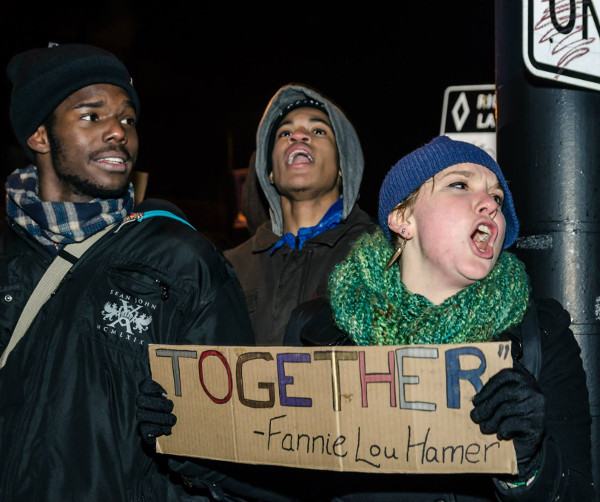
PHOTO/SARAH JANE RHEE
Black History Month is more than a time to set forth or celebrate the contributions of outstanding African Americans to American history. It is increasingly becoming a time to sum up the struggles of the past, extract the lessons and adjust our efforts for the oncoming battles.
America has entered a vast social revolution. This revolution is having its effect on all aspects of life, including the on-going African American fight for equality. It is not possible to think strategically for the coming period without considering the impact it is having and will have on today’s movement.
While it is clear that a new form of movement is emerging, it is necessary to sum up the breaks in continuity that create new possibilities.
Historically, there were two main conditions for controlling the Black movement.
Most important was the isolation of the Black workers from their white counterpart. Thus the century of legal segregation. Today, technological development is forcing a sector of white workers into social and economic conditions similar to those occupied by the Black. Communication among the workers is now possible and the ideological fight for class unity can now be won.
Secondly, segregation forced the isolated Black worker to rely on those who had communication with not only the “power structure,” but with other Black communities. These were, in the main, the direct descendants of the “house slave.”
Under such conditions, the white ruling class literally appointed the leaders of the Blacks. It should be remembered that every single uprising of the field slaves in America was compromised by the “house slave,” who was living better that the field slaves.
The upsurge of national unity beginning with the Trayvon Martin case through the police murder of Eric Garner in New York, could not possibly have happened without social media. There is a huge effort to contain this new weapon—but the reality is that the grassroots today have the communication possibilities that were reserved for the elite just a few years back.
New means of struggle are available to both sides. However, this latest round of struggle has shown that the days of the unknown national “leader” coming in and disrupting the local organization are coming to an end.
Tactics have to change accordingly. The indispensible introduction of new ideas is possible as never before. The ruling class is even more capable of imposing “leaders” on the mass—but the mass has this new capacity of popularizing concrete demands and exchanging experience.
The revolutionaries today, as never before, can and must dig deeper into the mass— arouse them and guarantee the stability that only local organization can create.

